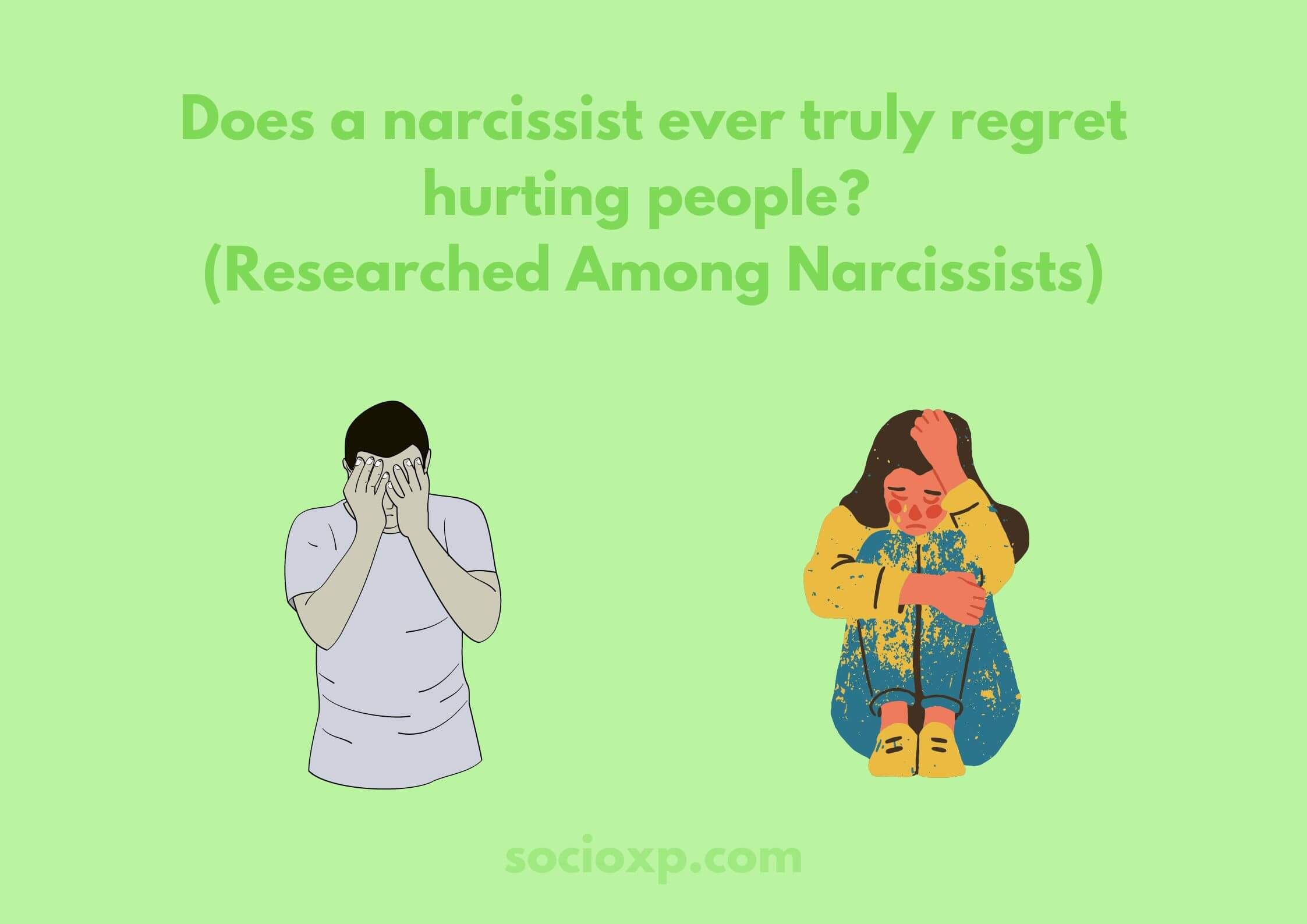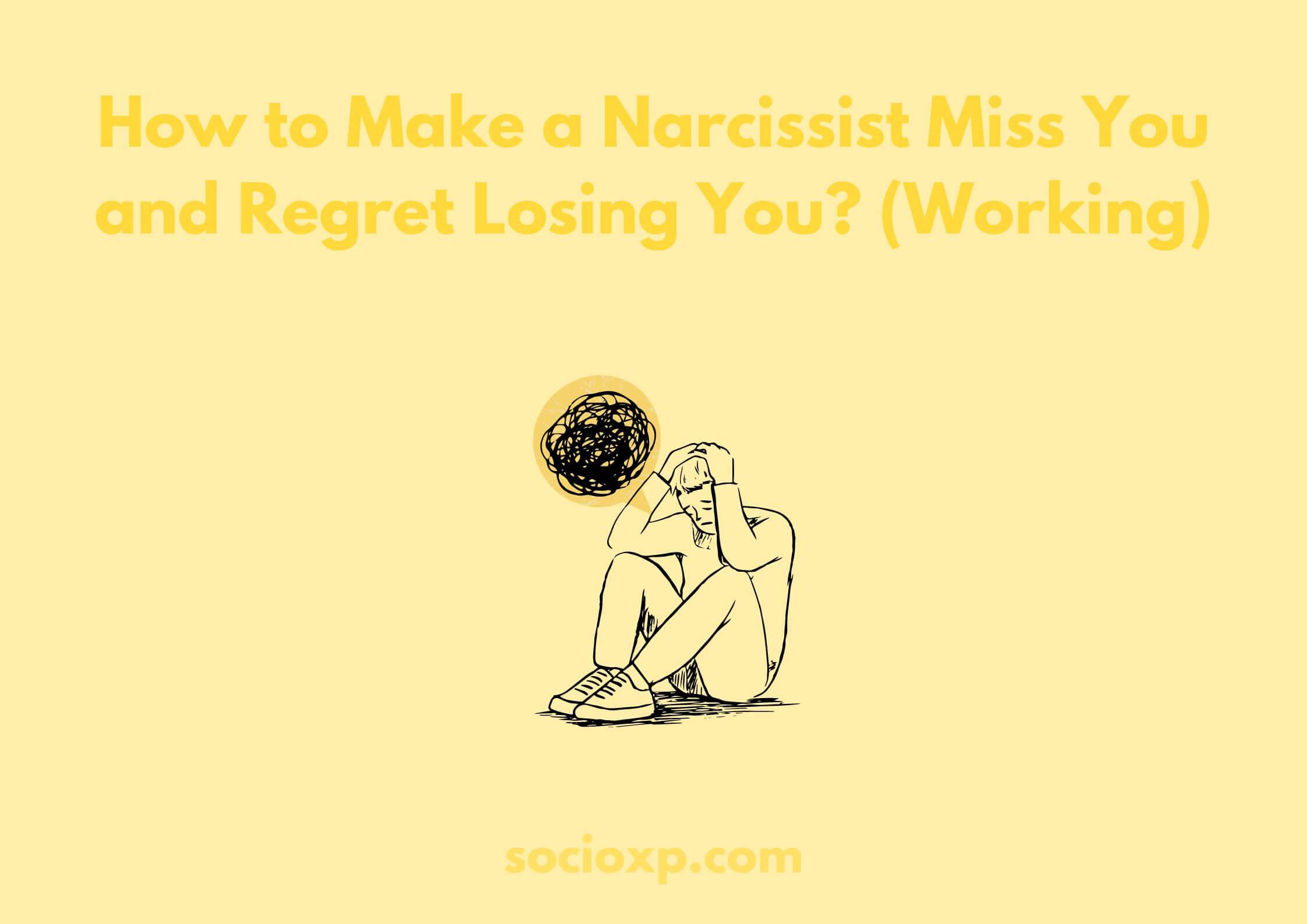I Don’t Want To Be a Narcissist Anymore (Expert’s Advice Step-by-Step)
If you are suffering from Narcissistic Personality Disorder and you tell yourself on one fine day, What if I Don’t Want To Be a Narcissist Anymore?” or at least try changing for the sake of betterment as a person, for your family, or for your loved ones. Do not get worried as there is almost nothing that cannot be changed, even lethal disorders are curable thus curing a psychological disorder can be made possible but with time and endurance. Sure, it is going to seem, be, and will be difficult, but once you put your heart through the process of initiating the process of change, it will come through time and endeavors.
If you are called a narcissist, at any time or any point in your life then you might be wondering how to ensure that you are not becoming one. Or due to your unusual and extravagantly outlandish behavior, if at all you are proven to be a narcissist with the help of diagnosis, then you might be worried about how to make yourself better or how to not be a narcissist. You might be having complicated thoughts regarding treatments, therapies, or steps to cure narcissism. But it is not as complicated as it seems as everything is possible once you put your heart into doing it.

If you desperately want to have some positive changes in your life and do not want to have narcissistic qualities, then here is your chance. Everything seems difficult from afar unless you give it a try yourself and put maximum effort to achieve it. So do not get disheartened or give up as “Every cloud has a silver Lining”. Let us discuss the step-by-step process and indulge ourselves in learning more about curing or at least getting an exit toward betterment.
What is a Narcissist?
A Narcissist is an individual who is often defined as a difficult individual, very difficult to live with, and tough to endure. A Narcissist is an individual who is excessively obsessed to have control, also they expect everyone around them to focus just on them. They intend to be the center of attraction in all situations. They should be the elephant in the room all the time, are control freaks, are sly, mean, selfish, and much more.
There are some weird traits too when you associate with a narcissist. This should not come to you as a shock as being with a narcissist would bring lots of surprises, shocks, and regrets to you. So let us move further and know about some of the other strange and surprising things that a narcissist can, may, or would do. As Narcissists are not your regular dating partners or regular people in your life, they are much more than that. They come with many questionable demands, weird and strange behavior, and some acts that may be a little difficult for you to forget.
- You are always the wrongdoer and not them in their eyes
- They are selfish and inconsiderate
- They always see the negatives first
- They are almost incapable of praising others or giving enough credit to others
- They act over dramatically over trivial matters
- There is no winning against them in an argument
- They are highly competitive even with someone who is incomparable
- They cheat innumerably
- Have uncommon expectations and unusual fantasies
- They use bygone grudges as their trump card
- They use manipulation in all situations where they feel they are losing the grip
- They never provide straight answers

What is Narcissistic Personality Disorder (NPD)?
If you are dating a narcissist, or have a narcissistic family member then be ready to be surprised by some of their unusual, surprising, or strange behavior patterns. This outlandish behavior may be the cause of Narcissistic Personality Disorder (NPD).
If a person is diagnosed with NPD(Narcissistic Personality Disorder), then that may be responsible for many behavioral and personality changes for a narcissistic person. So coming across strange behaviors of a narcissistic person would not come to you as a surprise. When you live with a narcissist, you have to be ready to expect the unexpected sometimes. Not every day do you have to be ready for strangeness but there are a few times when a narcissist would act against normalcy, which might shock you or put you into delusion.
Now you would have a question, how is a narcissist different from anyone?
To understand NPD(Narcissistic Personality Disorder) in simple form or pedestrian language, let us put it in simple words. NPD(Narcissistic Personality Disorder) is portraying some common toxic traits in an intensified state than others. And that is how these common toxic traits that are possessed by all but simply are intensified for a person with narcissistic personality disorder make them a little from others.
The traits may be a magnified ego, an extensive need for admiration and praise, and an urge to be superior to others or at least consider oneself to be superior to others. These traits are present in any common person, but for a narcissist, these traits are present in an outrageous amount, and they are intensified when something substandard takes place.
A mental illness can cause many personality and behavioral changes in a person. So if you come across some strange behavioral pattern of a person, it is either they have some mental health issue, or they are going through some traumatic life situation. If it is the first aspect, then consulting a mental health expert would be advisory.
Key Causes of Narcissistic Personality Disorder
There are not many official rooted answers for the causes of Narcissistic Personality Disorder, but according to many researches and analyses provided by psychologists, therapists, mental health and psychology experts, there are a few known key factors that can be the causes of Narcissistic Personality Disorder.
- Heredity
- Brain Mutations
- Genetic transmission from parents to offspring
- Parenting flaws
- Acquiring through some arbitrator like friends, partner, or anyone who is influential enough in life
Often it is observed by mental health experts, that the children raised by narcissists have childhood trauma, which affects their upbringing and also makes the same or even more narcissistic than their parents. Children learn from their parents, so parents would only be passing on narcissistic traits to their children as an inherent quality knowingly or unknowingly, willingly or unwillingly, by choice or without choice. Unless they are guided toward what is right, instead of toxic behavior, there is no way a child will not learn all those narcissistic traits possessed by their Narcissistic parents.
What are some traits of a person suffering from Narcissistic Personality Disorder?
- Lack of sensitivity and empathy.
- Exaggerates situations to intensify their worth, accomplishments, or even difficulties.
- Are self-centric.
- Are obsessed with materialistic desires and appearances.
- Blame others for their mistakes.
- Have unhealthy relationships.
- Have regular mood swings.
- Arrogance and anger is their first reaction to any problems.
- Hate changes and also cannot take criticism well.
- Are emotionally unstable and unavailable with low self-esteem.
- Jealousy is one of the many arrows in their quiver.
- Takes advantage of others easily.
- Are abusive both mentally and verbally.
- Lack of self-awareness and self-reflection.
- Always expect more from others.
- Are in constant need of approval.
Some examples highlighting the narcissistic behavior of a person
When something triggers a narcissist, their first reaction is aggression and hostility. Upsetting them may give rise to a narcissist’s ill-intended side and thus they may act viciously or harshly. They would be all hyped up and agitated.
Narcissists never feel guilt or do not have any concepts of self-reflection. Narcissists do not want their grandiose image to be tarnished by their wrongdoings. So they be blaming or point fingers at others. This is the reason narcissistic projections are more common, frequent, and intense.
Narcissists would often victimize themselves, rather than commit to their fault here.

Narcissists are charmers, charmers with words, sweet talkers, and can distort the reality of the situation in no time. They can turn a complete situation in their favor in a short span of time. They can even turn truths into twisted lies and vice versa. Gaslighting is one of the most prominent techniques utilized by narcissists to turn situations, to make themselves look good, and as a coping or defense mechanism when caught doing something wrong.
A narcissist would completely make use of their victims, partners, or family members and when they are no longer available for them or become emotionally unavailable to them, emotionally drained, have no longer supply left, and start ignoring them; this is when they reject you and end the relationships abruptly.
Pretense and no true feelings are the prime game played by a narcissist.
Narcissists have a tendency to use people for their needs and desires. They just seek attention and control. They believe the world revolves around them and they are entitled to have whatever they desire. Hypocrisy is their go-to trait. Selfishness is in their true nature, and they would do anything to seek benefit from you. They ought to keep in touch with their exes even and also do not hesitate to lure them into new relationships despite their commitment to their life partner.
So now you have come to know enough about narcissists, and ways to detect one or ways to know even if you are among the ones. But what if you want to change and not be a narcissist anymore? Yes! It is definitely and certainly possible.

What if I Don’t Want To Be a Narcissist Anymore? (Expert’s Advice Step-by-Step)
- Know more about your triggers and identify such situations
- Track the root cause of your narcissistic behavior
- Know and identify the ideal behavior in various situations
- Recognize other people’s feelings
- Be more mindful and attentive to your relations and responses
- Act differently than your usual behavior
- Learn to accept
- Learn to feel all emotions and not shut down feelings
- Try to understand others more and start to listen to them
- Give yourself time to heal
- Seek therapy
1. Know more about your triggers and identify such situations
Knowing which situations, actions, and behavior make you lose your cool, can help a lot in keeping yourself calm and composed and not losing your temper. Knowing about your triggers can help you to stop being the narcissist or at least help you keep away from the bad behavior that emerges when something, someone, or some situation makes you angry and simply pushes you back toward the self which you do not want to be anymore. So know your triggers and help yourself from keeping away from narcissistic practices.
2. Track the root cause of your narcissistic behavior
Understanding the “WHY”, and knowing the reason behind why you function in certain ways, or what is the root cause of your narcissistic behavior, or why are you behaving the way you do, is the first and foremost step toward not being a narcissist anymore. Knowing the reason, understanding how it has affected your life and trying to stop practicing narcissistic actions are a few baby steps that you need to take in order to stop being the narcissist and be able to function differently and better than you currently are.
3. Know and identify the ideal behavior in various situations
If you are a narcissist, you might have faced this in many situations, where people are constantly trying to tell you how different, unlikely, and questionable your behavior is in almost many situations and how people try to keep a distance from you in certain situations. People often try to show you the correct way to behave but you being the egoistic narcissist would not listen to them often.
So knowing and identifying the ideal behavior in various situations, knowing the socially acceptable behavior that would minimize the hurt to other people, or knowing how people expect you to behave moderately without being the selfish-natured being that you are; can help you define the ideal or socially acceptable behavioral tactics.
4. Recognize other people’s feelings
As a Narcissist, you seem to always put your needs, wishes, and priorities first and then think about others. So to have a balanced life, respecting your and other people’s feelings is equally important. Understanding others is as important as understanding yourself to not hurt other people whom you truly value in your life.
A healthy relationship requires mutual understanding, respect, control, and nurturing. As a narcissist, you might be proven incapable to do so in most cases until you find someone similar to you and face hurtful situations. Recognizing emotions, dealing with your emotions, and how other people feel when you behave in a certain way can help you to eradicate all those toxic narcissist traits and behavioral tactics which can result in you going in the opposite direction other than narcissism.

5. Be more mindful and attentive to your relations and responses
As a narcissist, you might have a sense of entitlement that you feel the need to be special and also treated as someone special. You hardly listen to others, pay attention to what they have to say, or what they want from you, expect from you, or just how can you help them because you always think that you are special, smarter than others, and also should be treated differently as a narcissist.
So instead of continuing your older habits and instead of having a sense of entitlement, if you really want to change and want your relationship to be better, be mindful o what others have to say, pay attention to what you reply or respond to them rather than just ignoring them just because the topic is not about you that does not mean you should not listen or help. Try to give more respect, and attention and listen more to others.
6. Act differently than your usual behavior
Differently here means in a better and something else than your usual social behavioral style. This includes an eventual decrease in rage, not being a self-centered person all the time, socializing but not just for the sake of showing off your wealth and knowledge; indeed to actually make friends or share stories and enjoy life as others do, not trying to be the elephant in the room all the time, or just do not be mean and selfish all the time. In short, just try to be a different version of yourself rather than being your usual self which is not liked by many people around you.
7. Learn to accept
Just do not always try to change things according to the way you want to gain control, instead just learn to accept what others do, say or behave. It is not always necessary to have control over everything in life, because there are certain things that are eventually out of your control. So instead of holding everything tight always, learn to let loose sometimes.
8. Learn to feel all emotions and not shut down feelings
As a narcissist, you might have a habit of discarding people after gaining what you want from them and feeling nothing towards anybody. Or instead of just faking emotions try to feel them in real-time rather than just shutting them off in some corner as all beings are capable to feel emotions and respond to them. So rather than just doing things that way, learn to acknowledge how others feel, and how you feel about others, and try learning about simple emotions like guilt, love, care, and empathy.
9. Try to understand others more and start to listen to them
Instead, of making everything about you all the time, try to understand other people’s perspectives from time to time, and listen to them more often so that people around you do not get a bad impression of you. This can help in perceiving you as a better or changed person once you change your old toxic habits and try to be the better version of yourself with each passing day.

10. Give yourself time to heal
Changes do not happen overnight, they usually take a lot of time in fact longer than the usual that you might have expected. Healing comes through spending time with yourself, enjoying your own company, surrounding yourself with good and positive people, not being afraid to acknowledge the wrongdoings and working to make things better for those whom you have caused problems and hurt, seeking therapies, being one with nature, and most importantly not rushing the healing process. Time heals everything and is also one of the most important factors to measure change.
11. Seek therapy
You might have become an emotionless robot because you prefer hiding or depressing your emotions in order to keep up the image of being the perfect partner in the relationship. You might be avoiding all the sad emotions with help of excuses just to keep yourself from feeling the pain. But when you start feeling all the emotions like grief, happiness, sorrow, sadness, empathy, sympathy, and every other emotion in depth, then this is the sign you are healing and becoming the better version of yourself. So if you need professional help like therapies or some help from support groups.
Conclusion
The most important step is to understand the abuse and also understand how it is not normal. Then comes the task of recognizing the usual pattern of abuse, ways of creating drama and a toxic atmosphere, harmful approaches, and responses to simple questions, changes of behavior as soon as a third party enters the scene, or never accepting the mistakes. Try to understand your toxic behavior first, Narcissist.
The next step after the acknowledgment is figuring out ways to change those habits and look to what is correct and go for you.
Then comes working for it, implementing it, and becoming the person you want rather than being a narcissist.
If you can successfully change or try to change a few toxic traits and keep on working on them sincerely you might soon note some positive changes in your life like, you might be feeling good in your own skin, you might be liked by people sincerely, you might feel good and happy and lastly, you might soon perceive life in the best possible ways. Do not lose hope and work toward your goal of not being a narcissist anymore sincerely.
- How To Make A Narcissist Discard You And Leave You Alone? - March 21, 2024
- Narcissistic Supply: 9 Signs You May Be Someone’s Narcissistic Supply - March 11, 2024
- Narcissistic Abuse And Anxiety – 11 Symptoms of Narcissistic abuse-induced anxiety - March 9, 2024


